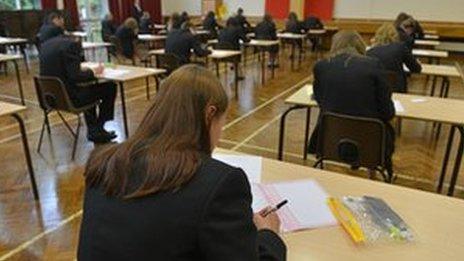GCSE exams: Northern Ireland pupils outperform students in GB
- Published
About 30,000 pupils in Northern Ireland are receiving their GCSE exams results on Thursday
Pupils in Northern Ireland have shown improvements in their GCSE performance, and continue to outperform their counterparts in England and Wales.
About 30,000 local pupils are receiving their exams results on Thursday.
Overall, the number of entries awarded A* to C grades in Northern Ireland increased by 0.7% to 78.7%.
Across Northern Ireland, England and Wales as a whole, 69% of GCSE entries were awarded grades from A* to C.
Northern Ireland entries achieving A* to A also improved, up by 0.4% to 28.6%.
There were also improvements in maths and English.
Outperform
Those gaining A* to C grades in English rose from 73% to 75.8%, a considerable rise, while maths rose 0.4% to 66.6%.
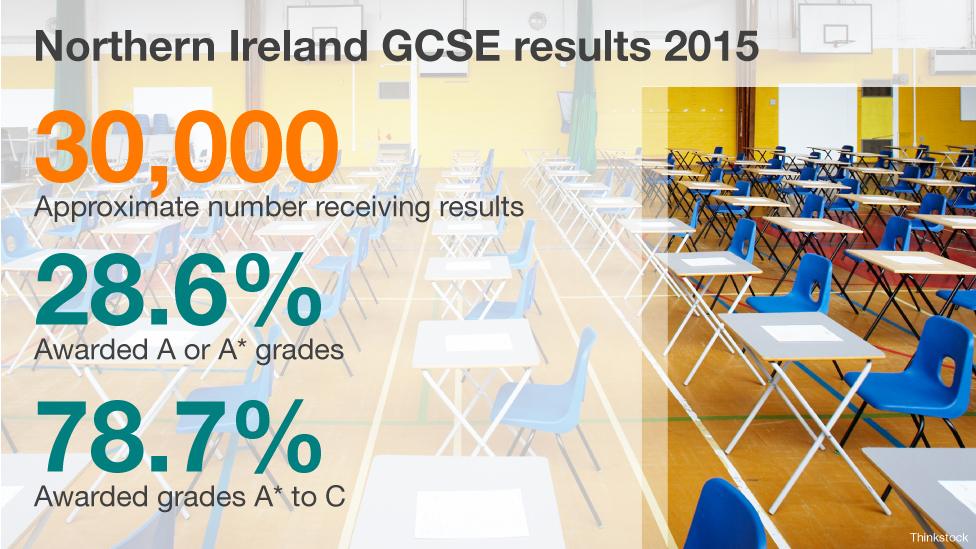
Girls continue to outperform boys, and the performance gap has closed slightly.
While more boys achieved A* to C grades than last year, girls continued to outperform them by 7.3%.
In 2015 the proportion of entries in STEM subjects (science, technology, engineering and mathematics) has grown by 3%.
This figure is being driven by Mathematics (up 3.3%) and ICT (up 6.3%).
There were also rises in the percentage of the overall entry taking biology, chemistry and physics.
Testament
Overall, entries for languages fell in 2015, with the exception of Spanish which rose by 7%.
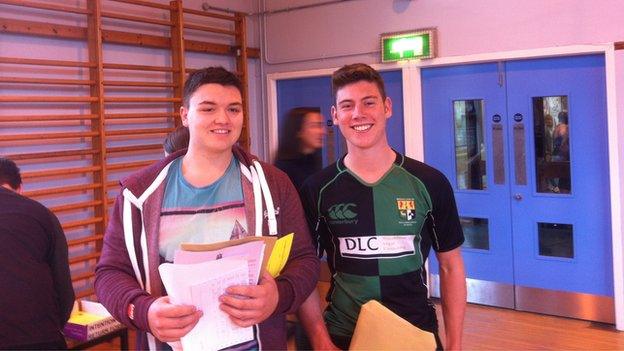
Smiling pupils celebrated their results on Thursday morning at Sullivan Upper School in Holywood, County Down
There were also falls in entries for languages across England and Wales.
Justin Edwards, chief executive of the Council for the Curriculum, Examinations and Assessment (CCEA), Northern Ireland's awarding organisation, congratulated students.
He said the results were a "testament to the diligence of the students and the support given to them by their teachers".
"This year's results show a steady improvement in A* to C grades. Importantly the grades in English and mathematics have continued to build on the good performance of recent years."
Mr Edwards added it was "encouraging" to see boys' improved performance who were "closing the gender gap at grades A* to C".
Frances O'Hara from the Careers Service at the Department for Employment and Learning said that students had plenty of options., external
"The vast majority of young people will return to education, whether in their existing school or going to an FE college," she said.
"Others will enter vocational training, or get an apprenticeship.
"However, it's important to take good advice and that's where our careers advisers come in."
Decimation
But a significant number of pupils from disadvantaged areas still leave school with few qualifications.
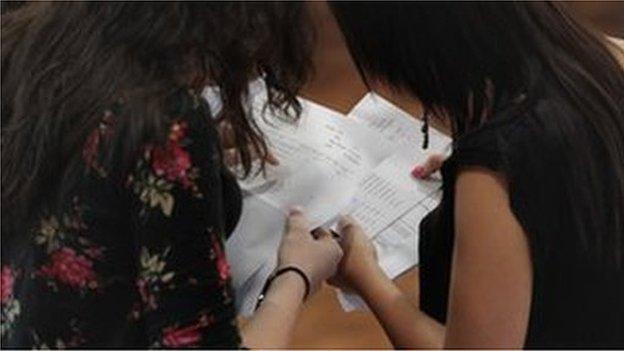
In recent years, girls in Northern Ireland have generally outperformed boys in GCSEs
Sean McElhinney, from the National Association of Schoolmasters Union of Women Teachers (NASUWT), said he was concerned those pupils would be further affected by cuts to the education budget.
"Valuable programmes that have been building on learning over the past number of years that target children subject to social deprivation are set to see their budgets reduced to the point of decimation, so the picture is not set to get better," he said.
There are some differences in the versions of GCSE being taught across the UK.
Reforms to GCSEs, such as the switch to linear, non-modular courses and less coursework, have applied only to England.
Also, unlike England, speaking and listening skills are still assessed as part of the English language GCSE in Northern Ireland.
However, Education Minister John O'Dowd is set to decide whether to retain the current grading system of A* to G in Northern Ireland, rather than alternative bands from one to nine that will be introduced in England over the next few years.
- Published20 August 2015
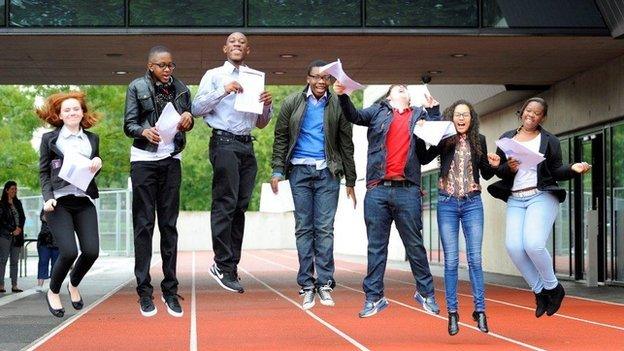
- Published20 August 2015
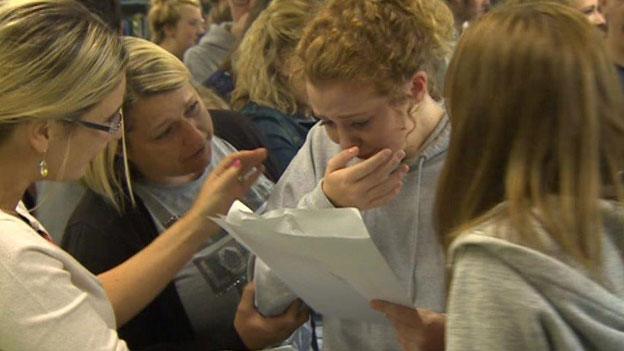
- Published20 August 2015
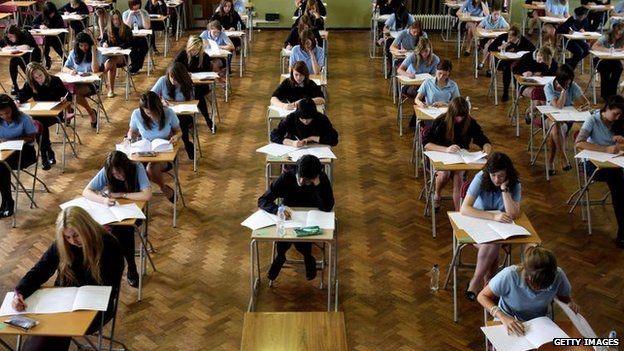
- Published21 August 2014
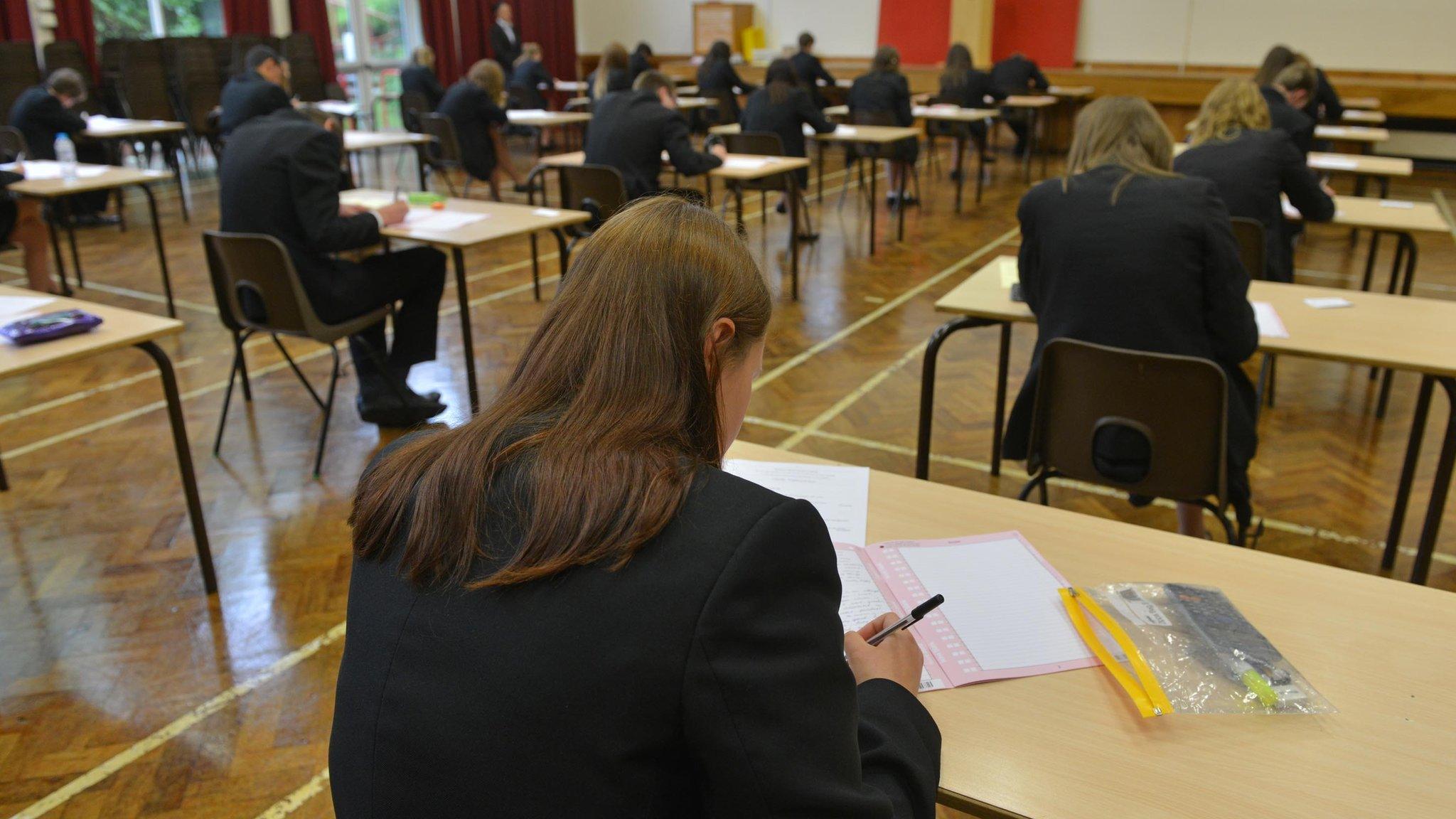
- Published21 August 2014
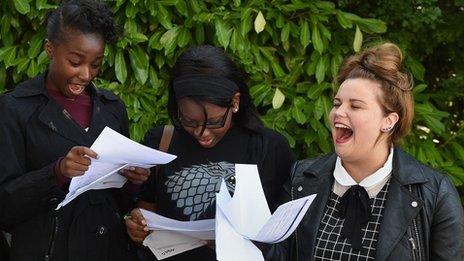
- Published22 August 2013

- Published23 August 2012
